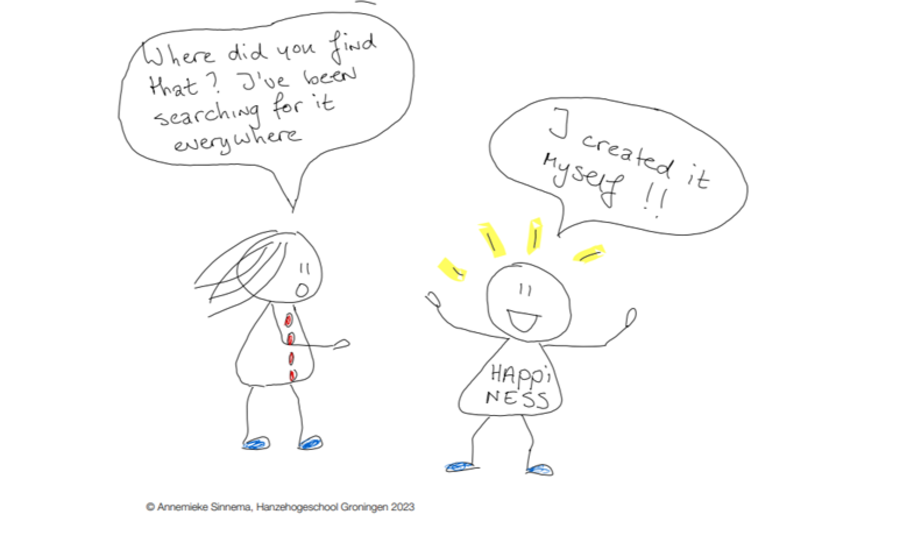Applied Positive Psychology
- Minor
Applied Positive Psychology

In this international programme we will look at the scientific knowledge on happiness and well-being and at the factors that lead to a sense of well-being, meaning and connection. Based on this knowledge we will look further into and develop interventions that can help individuals, organisations, communities and society at large to flourish.
When I was 5 years old, my mother always told me that happiness was the key to life. When I went to school, they asked me what I wanted to be when I grew up. I wrote down "happy". They told me I didn't understand the assignment, and I told them they didn't understand life'
JOHN LENNON
When being asked the question what do you want most out of life, people from all over the world answer: to be happy! But despite decades of economic growth we are no happier now than we were sixty years ago. What is happiness and do we really know what makes us happy? Do we give happiness enough priority? Can we influence our own happiness and the happiness of others and how? These (and more) questions are being asked and answered by positive psychologists all over the world and will be addressed in the minor Applied Positive Psychology.

Positive Psychology is the scientific study of wellbeing and human flourishing. This new branch on the psychology tree was founded in 2000 by Martin Seligman and Mihaly Csikszentmihalyi. They were not happy about traditional psychology's emphasis on weaknesses and what is wrong. Psychology should also look at what is right and at people's strengths. Since then psychologists all over the world have started to study happiness, well-being and the good life. According to Seligman we can indeed influence our own happiness by changing our actions and by making the right choices. We can flourish individually and together through experiencing positive emotions, engagement, relationships, meaning and accomplishment (PERMA model of wellbeing, 2011).
Are you interested in psychology in general and in focussing on solutions and human strengths? Are you interested in why we do the things we do and in how we can change our thoughts and behaviour to become happier? Are you interested in helping people, organisations and communities to flourish and become their 'best possible self'? If you are interested in studying in a multi-cultural community, then you will like this minor!!
In this international minor we will look at the scientific knowledge about happiness and well-being and at the factors that lead to a sense of well-being, meaning and connection. Based on this knowledge we will look further into and develop interventions that can help individuals, organisations, communities and society at large flourish.
Happiness, well-being, resilience, engagement and flow, character strengths, optimism, motivation and goals, gratitude, positive relations, sustainable workplaces and societies, happiness economics, mindfulness and many others.
By the end of the semester you will be able to:
The semester will be divided into two ten-week periods. In each period there will be a mixture of lectures, workshops, training days, coaching and project time.
Exchange Programme / minor Applied Positive Psychology | 30 EC |
|---|---|
| Exploring Positive Psychology | 5 ECTS |
| Positive coaching skills | 5 ECTS |
| Creating and sharing Happiness | 5 ECTS |
| The Positive Project: | 15 ECTS |
By the end of the semester you:
Exchange students can find more information about the application process on www.hanze.nl/applicationexchange.
If you have any questions, please send them by e-mail to: [email protected]
You can find information about the application procedures by checking the ‘Knowledge base’ in Myhanze.
You can find information about the application procedures on the website Kies Op Maat.
If you have any questions, you can contact Annemiek Sinnema.
Please send them by e-mail to: [email protected]
How satisfied are you with the information on this page?